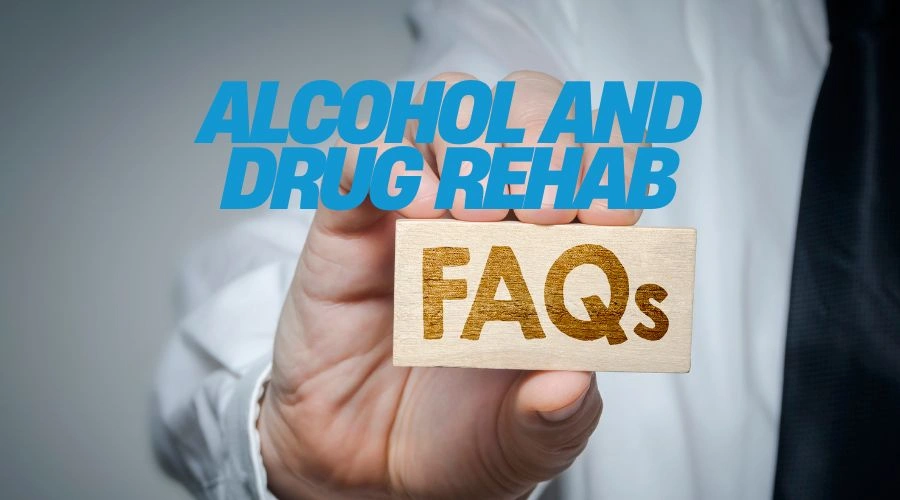Understanding the Impacts of Alcohol Abuse on Emotional Intimacy
It is well known that alcohol addiction can affect your ability to maintain healthy relationships. Alcoholism is a progressive disease that can slowly erode your functioning in all areas of life. Even if you try to prevent it, alcohol abuse will affect your connections with others.
As for why an alcoholic cannot love, that’s not necessarily true. At least, it isn’t a life sentence; recovery makes it possible to have healthy relationships. But if you or your partner is in active addiction, it’s time to assess the reality of things.
At Icarus Wellness and Recovery, we are experts in the substance abuse and mental health field. Let’s talk about how alcohol addiction can impede relationships and how treatment can help.
Why an Alcoholic Cannot Love

There are many reasons why someone who regularly engages in alcohol abuse or substance abuse cannot have healthy relationships.
Here is a list of some of the common ways your or your partner’s alcohol abuse might interfere.
Increased Severity of Alcohol Use Disorder
First, alcohol use disorder, the formal name for alcohol addiction, is a treatable disease and a well-known form of broader mental disorders.
However, if someone is in active addiction, it can get worse if left untreated. Many people find that they need to drink more and more as time goes on to get the desired effects.
If this does not sound like you or your partner, it is worth noting this: Sometimes, functioning stays the same for a very long time with alcohol abuse. Then, it takes one thing (for example, the loss of a job), and it gets much worse.
The increased severity of the disease can be devastating for everyone involved.
Get Effective Detox and Rehab Options at Icarus
The Cost of Untreated Alcohol Abuse
Excessive alcohol consumption can be very costly. When someone you or someone you love abuses alcohol, it not only takes a toll on the drinker’s health.
However, it can also ruin their finances. Alcoholism often leads to missed days at work and related issues, like job loss. This can strain relationships and households.
Privacy and Secrecy
An increased need for privacy and secrecy is a hallmark of substance abuse. It is unfortunately true that an alcoholic partner may lie to you, sometimes unintentionally. For example, they might believe they can quit on their own, so they tell you that they can.
This is not the only example of a lie that an alcoholic partner might tell. Some people lie about the amount of money they spend due to their disease, how much they drink, how often they drink, or something else.
In short, active alcohol abuse can impair trust. This is something that can be rebuilt with effort in addiction treatment and recovery.
Emotional Strain on Partners
It can be difficult to remain in a partnership with someone who is suffering from alcoholism. Not only are you dealing with the stress and negative emotions from your partner’s addiction, but you also have to worry about the potential risks that come along with it.
If your partner is actively drinking, they are putting themselves and those around them in danger. You might start to worry about things like social repercussions, injuries, and accidents resulting from alcohol abuse.
What are the Risks of Being in a Relationship With an Alcoholic?
There are risks you need to be aware of if you are considering staying in a partnership with someone in active addiction. Here are some of them.
The Health Risks Alcoholics Struggle With
Alcoholism can take a serious toll on someone’s health. If your partner is often engaging in alcohol abuse, they are putting themselves at risk for liver damage, heart disease, cancer, and other health problems, including overdose and death.
If your partner is constantly drinking, they are putting themselves in danger of serious health problems. Remember, without some kind of intervention, all of the situations that are caused by alcoholism will not improve.
Financial Risks and Homelessness
Alcoholism can also cause financial problems. If your partner is spending all of their money on alcohol abuse, they may not be able to pay bills or buy necessary items. Additionally, if your partner can’t stay sober, they may lose their job and have trouble finding new employment.
This can lead to financial instability and even homelessness. If your partner is not interested in, or is not serious about, recovery, this is a worthwhile consideration.
Relationship Risks
Alcohol abuse can also put a strain on your partnership. If your partner is constantly drinking, they may not be able to participate in activities with you or spend time with you.
Alcoholism can cause your partner to neglect their responsibilities. If they are always drinking, they may not be able to take care of their children or hold down a job. This can lead to feelings of resentment and frustration.
Some people struggling with alcohol addiction become aggressive when they are drunk and adopt abusive behavior. This can lead to arguments and even physical altercations. If you are experiencing abuse of any kind, including verbal abuse, resources such as the National Domestic Violence Hotline website and phone number are available.
Emotional Risks
Don’t discount the potential effects of a partner’s alcoholism on your emotional well-being. Alcohol use disorder can also take an emotional toll on both you and your partner. If it continues, active addiction can be incredibly traumatic. This only becomes more true as time passes.
While it’s not true that alcoholics cannot love once they are sober, there is no such thing as a completely healthy relationship during active substance abuse. Trauma has serious mental and physical health consequences. If they’re not abstinent from alcohol, you are at risk of the trauma addiction can cause to loved ones.
Legal Risks of Alcohol Abuse
If your partner is suffering from alcoholism, they may also be at risk for legal problems. Even though alcohol is a legal substance, it does impair judgment.
For example, if they are driving while drunk, they could get a driving under the influence (DUI) charge.
These are just some of the risks you should be aware of if you are considering staying in a partnership with an alcoholic. While it’s possible to have a healthy and happy partnership with someone with alcoholism once they start to heal and recover, it’s crucial to be aware of the potential risks involved in having a relationship with someone in active addiction.
Alcohol Addiction and Codependency
Alcoholism and codependency are two very serious problems. Alcoholism is a disease that causes a person to compulsively drink to the point where it interferes with their daily life. Codependent behavior, highly associated with families and partnerships where one person lives with alcoholism, can make for an unhealthy relationship.
The codependent individual may feel as though they need to take care of the alcoholic or help them avoid repercussions, such as legal issues, related to alcohol use disorder. This is a form of enablement. A codependent person might experience low self-esteem and other symptoms. This is an incredibly unhealthy situation for both parties involved.
There is no one-size-fits-all solution to codependency, as the best course of action will vary depending on the individual situation. However, working with a mental health professional is an excellent way to start addressing the problem.
Repairing Your Relationship With An Alcoholic
If you decide to stay in the relationship, remember that your well-being is the most important thing. Here are three things you can do if you are in a relationship with someone struggling with problematic drinking habits.
Get Help From a Therapist
Talking to a friend or family member can be helpful in some ways, but it does not replace the guidance of an expert. If your partner has an addiction, it’s important to reach out for help from a therapist or another mental health professional for yourself.
Couples therapy, which is offered in our alcohol rehab programs, can help someone in recovery and their partner heal their relationship. If your partner isn’t getting help, however, reaching out to an individual therapist that you can meet one-on-one with, can still be incredibly helpful.
The strain of alcohol abuse on a relationship is not easy to cope with. You don’t have to do it on your own.
Set Boundaries With the Alcoholic Partner
It’s crucial to start setting boundaries with the person struggling with alcohol addiction. This means learning to say “no” when they ask you to do things that you are not comfortable with, such as enabling their drinking. This is a key sign of a codependent relationship.
Establishing boundaries can be difficult, but it’s necessary in order to start putting your own needs first. Therapy can help if you find that you have a hard time enforcing boundaries.
Nurture Your Relationship With Yourself
Your relationship with yourself matters. How are you doing in terms of your basic needs and self-care? Are you getting the sleep that you need? Do you have effective stress management skills to use?
Be honest with yourself. Whether your partner is working on their sobriety and you’re able to work on your relationship or you’re in a tough spot where it seems like they may not get help, having a loved one with an addiction can sometimes hinder your own self-care.
How Does Someone With Active Alcoholism Sustain a Healthy Relationship?
Someone in active addiction must first and foremost commit to getting sober. This means making the decision to abstain from drinking alcohol completely. Once this choice is made, it is important to find a support system to help you with recovery. This could mean attending alcoholics anonymous meetings, entering an addiction treatment program, or something else, like seeing a therapist.
It is also essential that an alcoholic build healthy coping mechanisms and learn how to deal with stressful situations without turning to alcohol. This may involve exercise, journaling, meditation, or any other activity that helps you relax and de-stress. The evidence-based and holistic treatment methods at our center can help you find what works.
Once an alcoholic is in recovery and has been sober for some time, they may then be able to maintain a healthy relationship. However, it is crucial to remember that recovery is a lifelong process and there may be setbacks along the way. If you or your partner is struggling with addiction, seek professional help right away.
Choose Icarus for Effective Alcohol Treatment Programs
Alcoholism is not set in stone. It is possible to treat alcohol addiction, and you or your partner can regain control with the help of a professional.
Icarus Wellness and Recovery provides effective treatment for addiction and mental health disorders. We involve loved ones in the recovery process, helping people facing addiction and those around them heal from substance use and its effects.
Call our admissions line to learn more about our programs today. You are welcome to reach out for yourself, a partner, a family member, or anyone else in your life who needs help. Every call is confidential, so please reach out to get options and support now.
Up To 100% of Rehab Costs Covered By Insurance
FAQs About Why an Alcoholic Cannot Love
Why do alcoholics have no feelings?
Alcohol can be emotionally numbing. In fact, many people drink, at least in part, to avoid negative emotions. Recovery can help you connect emotionally, process your emotions, and express your feelings healthily.
Is there a support group for partners of those with a drinking problem?
Absolutely. Support groups like Al-Anon can help partners and other loved ones of those facing alcohol addiction. They meet either online or in person.
Can I make my loved one stop drinking?
There are ways to encourage a loved one to stop drinking. For example, working with a drug interventionist to encourage professional help or talking with them if you believe they may have a problem, but have not discussed it already.
However, the sad truth is that you cannot “make” an alcoholic loved one stop drinking. They must also admit that they have a problem and seek help.
References
- Substance abuse and homelessness. (n.d.-e).
- Beck, A., & Heinz, A. (2013, October). Alcohol-related aggression-social and neurobiological factors. Deutsches Arzteblatt international.
- National Domestic Violence Hotline. The Hotline. (2025b, April 10).
- Co-dependency. Mental Health America. (2024, December 3).
- Anon family groups. Al. (2021, August 18).







